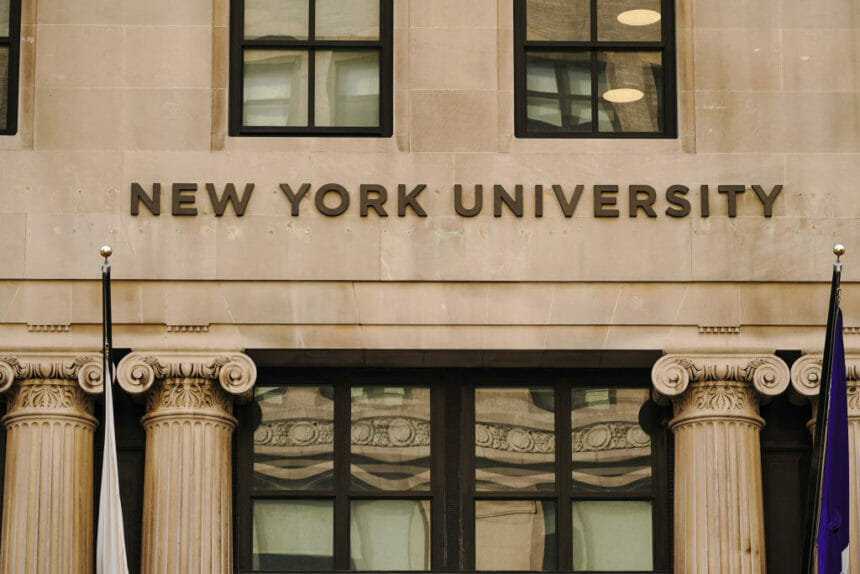It’s no secret that the healthcare industry has grown significantly in recent years. In 2018, driven by an aging population and a growing need for care, the industry officially became the country’s largest employer, exceeding even the traditional manufacturing and retail strongholds.
Healthcare marketers say this rapid growth has had an unintended and unfortunate effect: There are nowhere near as many individuals trained in healthcare marketing and communications as needed. That reality underpins the need for the New York University School of Professional Studies’ new Healthcare Marketing and Communications Certificate, which launched today to help meet the growing demand for top talent.
“When we talked to different colleagues in the agency or pharma world, they identified a real need for training people who wanted to enter the industry to better understand all these complexities [of healthcare], and how to build marketing and communications that were responsive to that,” said Michael Diamond, academic director of NYU’s Department of Integrated Marketing and Communications.
It wasn’t long ago when demand for such a program didn’t exist. Possibly due to its negative reputation – whether fair or not – the industry had a tough time recruiting top talent, especially on the marketing side.
A 2016 Gallup Poll ranked the pharma industry as one of the worst of 25 business sectors, with only the federal government held in lower regard. Specifically, 51% of Americans held a negative view of pharma, with issues like drug pricing and a lack of transparency in corporate activities fueling that negative public view.
That has changed drastically during the last year, due in part to the pharma industry’s crucial role in producing COVID vaccines. Thanks to their fast development, the industry’s reputation has risen to new heights.
Diamond chose not to comment on the industry’s history of negative public perception. Instead, he said he views the new growth – in both reputation and jobs – as an opportunity to bring in new talent. Interest in the healthcare marketing world is “blossoming,” he said.
Klick Health EVP and NYU adjunct professor Destry Sulkes agreed, adding, “Healthcare marketing is really seeing a renaissance. Almost all of our clients are pushing us to make sure our creative approach, messaging and behavioral and human insights are on par with Apple and Nike and all the brands that we love to love. We want to make sure we do that in healthcare, in a way that traditionally wasn’t done before.”
The NYU healthcare marketing certificate program is designed to shift the focus of new marketers toward patient-centricity, with a twin emphasis on empathy and data.
“What we teach is that you need to be both human-centric and data-driven,” Diamond explained. “Marketing and PR require people to really hone these skills, mining human insights out of qualitative experience and research and mining the data for information and metrics of analysis around campaigns.”
Diamond added that perhaps there’s a new sense of purpose among those seeking to enter the healthcare marketing world, one that didn’t exist pre-pandemic. Indeed, COVID-19 has breathed new meaning into the way information and communications can profoundly impact health.
“At a time in which the question of purpose and meaning to all of our lives personally and professionally has become more urgent, there are many young professionals who are looking for careers that have meaning,” Diamond noted. “Healthcare provides a very interesting opportunity in that space for people who are talented or interested in marketing, but perhaps don’t want to spend their lifetimes marketing beer or cigarettes. Maybe they actually want to engage in things that will have more impact on society’s health and well-being.”







